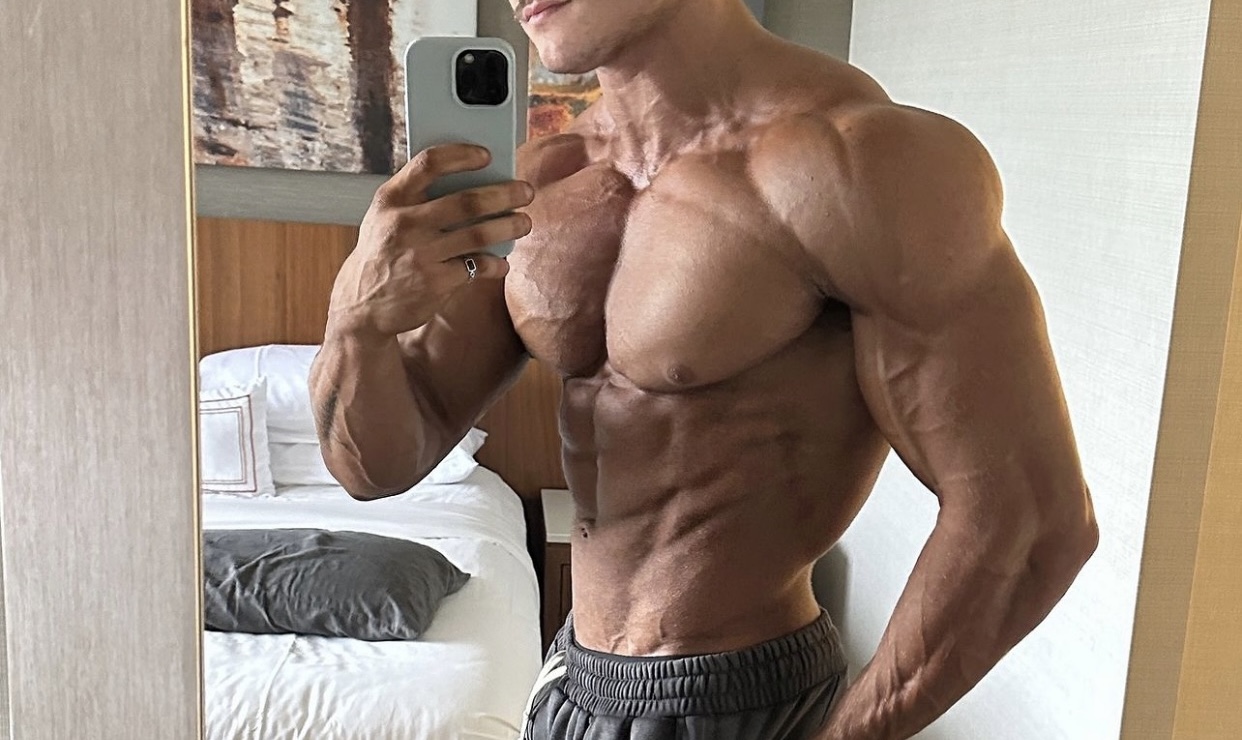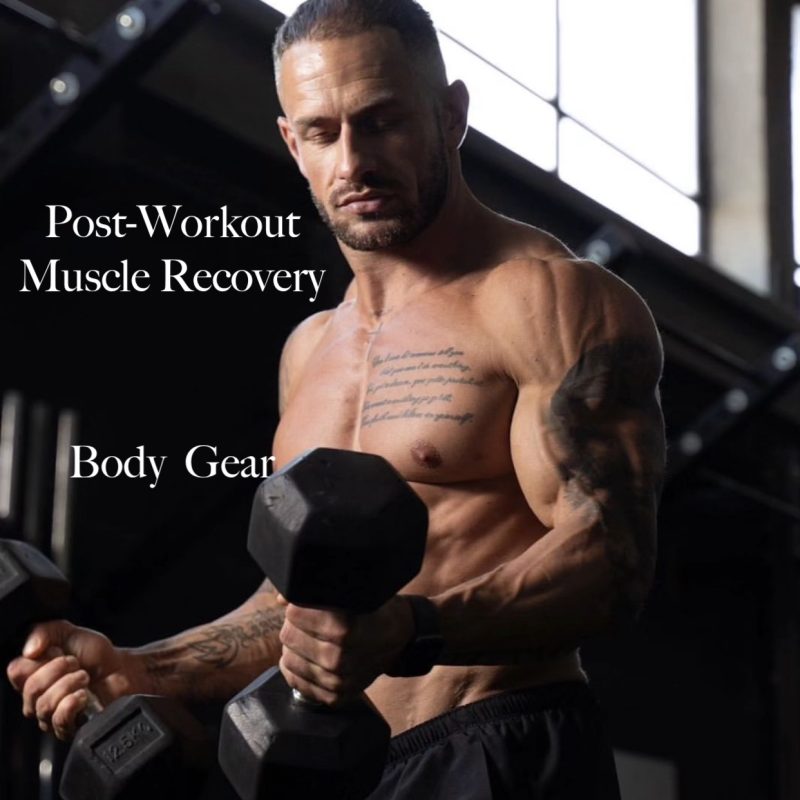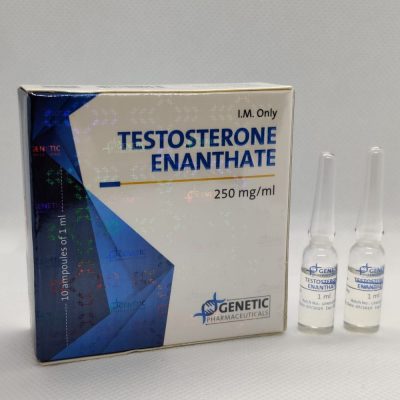Anabolic Steroids, General
Post-Workout Muscle Recovery
Post-workout muscle recovery is an extremely important process for your gains. Unfortunately, a lot of people make the huge mistake of underestimating the importance of a great post-workout muscle recovery process. You may have an awesome gym session, pumping a lot of iron the perfect way. Nonetheless, you’ll be ruining it without following proper muscle recovery by eating the wrong food or not getting enough sleep.
In fact, without a correct post-workout muscle recovery, the workouts could work against you, leading to muscle loss, energy loss, and so on. That’s why what you’re doing after your workout is complete is just as important as what you’re doing during your training. So you may search for ways to work the best possible ways, but it is all almost useless as long as you don’t follow the correct post-workout muscle recovery process. I’m saying all of this just to make you understand the importance of it. It will help you get the best possible results, get significantly faster results, and break through plateaus.
Correct post-workout muscle recovery boosts muscle gain and weight loss, reduces muscle soreness, boosts energy levels, and makes you feel good and look good. In short – do not make the mistake of many other people – underestimating its importance!
As long as you’re searching for ways to boost your post-workout routine and maximize results, better check out these top tips on what you should do after your workout to yield the best and fastest results.
How long does muscle recovery take after a workout?
It is going to take different people, and different lengths of time to recover after a workout. The amount of time your muscle recovery takes depends on a lot of different factors. It usually depends on your fitness level, the intensity of your workout, how long you worked out for, the last time you worked out the muscle groups, as well as… what you do for a proper muscle recovery.
Light activity could leave you a bit sore for about 24 hours. However, a challenging workout would usually take 2-3 days for your muscles to recover. There are cases when longer workout periods occur (such as when you feel your muscles sore for up to a week!).
However, it is extremely important to understand that what you do after a workout will greatly influence your muscle recovery. The most important factors include:
- Your quality and amount of sleep
- Your nutrition (what and how much you eat)
- Stress in your life
- How intense the workout is across different muscle groups
- Bad habits (smoking, drinking, etc.)
- Compounds you add (for example, anabolic steroids greatly reduce the post-workout muscle recovery time)
Why is recovery time so important?
Contrary to popular belief that we grow muscle in the gym (seriously, are there still people who believe in it?), we’re actually creating lots of tiny tears in muscles when working out. In short, when you exercise, you damage your muscles. However, this damage is important to help your muscles heal and grow back bigger and stronger. I guess you realize where I’m going? It is during the recovery that your muscles repair and are growing bigger and stronger. That’s why the recovery time (and proper muscle recovery process) is essential. If you won’t give your muscles time (and everything else it needs) to recover, you risk injury and even muscle loss.
That’s because the accumulation of tears without rest and recovery will put you at risk of losing muscles and even developing torn or pulled muscles. These injuries can range from light (where it is uncomfortable for a couple of days/weeks) to really bad (ruptures, that might require surgery, taking months/years to fully heal).
How do you prevent muscle injury?
Ask any veteran lifter and you’ll be told that muscle hypertrophy will include small increases in intensity over time (progressive overload). You can’t (at least shouldn’t) jump too quickly, because your muscles are not ready for the load, and you risk injuring yourself. Ego lifting is one of the biggest issues.
In the end, many pros would agree that your workouts should feel challenging, but not completely exhausted (although some would disagree with this). One sure thing – you should be strategic about your training program.
You must design your workout program to alternate the muscle groups in different workouts. This way, you’ll be able to increase the recovery time and reduce injury risk. For example, if you’re strength training three times per week, try grouping your muscles to provide enough time to recover. It could be:
- Monday: Back and Biceps
- Wednesday: Chest and Triceps
- Friday: Legs and Shoulders

Foods To Boost Your Muscle Recovery
When you’re working out, protein is crucial. In fact, protein is essential for anyone, even if you’re not lifting. But its importance is extremely important among those who work out. As said, when you exercise, you tear up your muscles. It is the protein the material necessary for your body to repair the damage in the muscles, heal, and grow back stronger. After all, our muscles are around 80% made up of protein. Want to grow muscle? Increase the protein intake. Studies suggest that 20-40 g of protein post or before a workout may help increase muscle protein synthesis. You need to aim for 2 grams of protein per kilogram of body weight per day (around 1 g/lb body weight a day).
Carbohydrates are also extremely important. Muscles store carbs in the form of glycogen for energy. They will use glycogen to perform the workouts in the gym. Carbs are important to support recovery and growth, and the energy to go hard in the gym. Lastly, there’s fat. Do not completely exclude fat from your diet, as you need fat for muscle recovery either among numerous other processes. But you usually get enough fat when having a balanced diet. A balanced diet is extremely important for post-workout muscle recovery.
This way, you’ll help avoid the development of any nutrient deficiencies that will impact your muscle’s ability to recover. Here are some general rules for a properly balanced diet: 10-20% of your calories should come from healthy fats, at least 1.5 g of protein per kilogram of body weight a day, and the rest – complex carbs (around 50% of calories you eat a day). Eat lots of fruits and vegetables. Avoid consumption of processed, high fat, and high sugar foods or drinks – any junk food.
Drinks to Boost Your Post-Workout Muscle Recovery
Dehydration is going to mess with your muscles’ ability to repair and recover. You need to make sure that you’re staying hydrated as long as you aim to stay on the top of your game. Do not forget that during workouts, you may get sweaty which means that you lose water. You’ll need to drink even more. Aim for at least 30 g of water per kilogram of body weight per day.
Avoid other drinks except sugarless tea and black coffee. Depending on your goal, you may have some milk in your coffee, but in moderation. Must warn you that most sports drinks, juices, and most other drinks besides water are not a good option, despite the fact that they may be advertised as healthy or sports drinks. An exception could be tart cherry juice. Research suggests that it may help reduce inflammation, muscle damage, and soreness. However, even with it, you should pay attention to your overall sugar intake.

Compounds to Boost Your Post-Workout Muscle Recovery
Creatine and protein powders are two widely studied supplements that have proven helpful in improving muscular strength and hypertrophy when involving resistance training. Moreover, protein and creatine could help athletes with their post-workout muscle recovery as they help reduce muscle damage and inflammation, helping to replenish the glycogen stores. Moreover, both protein powder and creatine are mostly optionally, depending on whether or not you’re taking enough of these from your diet. They are perfect options if you’re not, but you may not need them if you’re getting enough from the foods you eat.
However, anabolic steroids are the best compounds on the market that provide the best post-workout muscle recovery. Anabolic steroids will significantly boost your post-workout muscle recovery, reducing inflammation and soreness, reducing the tire necessary to recover, and helping you to work out harder and more frequently. You just need to ensure you buy the best quality steroids and that you use them right. Luckily, Body-Gear.to can help with both of those. As a bonus: you get the best prices for these steroids and can get convenient and fast shipping too!
Lifestyle Importance
It may sound pretty straightforward, but sleep is the time when the magic happens and your muscles actually grow. With proper sleep time and recovery, your muscles have enough time to recover. That’s why people who are regularly exercising intensively will usually require more resting (sleeping) time than the average person. Some professionals sleep 10+ hours a day! Sleep deprivation will lead to huge issues, stopping you from recovering due to various factors. Your body won’t be able to deal with inflammation, won’t produce hormones that aid muscle recovery, and so on. Moreover, research suggests that sports massage and compression garments could help reduce the time necessary for muscle recovery. They could decrease the Delayed Onset Muscle Soreness (DOMS) and help recover faster.
What to avoid when recovering?
It would be best for you to avoid anything that you already know is bad for your health. Usually, those things extend the recovery times, hindering your muscle recovery process. Avoid alcohol and tobacco where possible. Your body will focus on removing alcohol from your system instead of recovering muscles, for example. Also, avoid pushing yourself too hard. Overtraining is not a myth. It can cause injuries, nausea, tiredness, dizziness, and so on.
Try to find a balance between nutrition, sleep, gym, and your other activities. Also, go for a balanced diet too. Do not deprive yourself of nutrients or sleep. Also, avoid getting too many calories from processed foods too!
Tips For Sore Muscles
Stretching after your workout while your muscles are still warm could help relieve tension and boost your flexibility, as well as prevent muscle soreness. This will increase your range of motion, which will help build muscle, and better form, and posture! It will also lead to improving mobility and muscle relaxation!
Having cold/cool water can help reduce recovery time, prevent inflammation, and ease tension in muscles. May even try an ice bath when you’ll have more experience. This could also offer a better night’s sleep and rest. However, do NOT have a cold shower post-workout as it may work the other way around according to studies. Have a cold shower in the morning upon waking up, before you have your training or the next day.
Massages, roller foals, or Epsom salt baths could help too. Lastly, it may be a smart move to talk to a trainer. A fitness trainer can help provide an individual program that is tailored to your needs and goals. It will help support your post-workout routine too, aiding muscle recovery. Especially because they can also help with a diet plan for your needs.
Need Something To Support Post-Workout Muscle Recovery?
In the end, it is important to ensure that you use the recovery process after your workout to help gain the most benefits and offer your muscles the chance to rest and heal. A post-workout routine is going to provide you with the rest you need to restore energy levels and build muscle bigger and stronger. All without putting yourself at risk of injury.
However, sometimes, you may need a helping hand. You may need something to reduce those post-workout muscle recovery times and help break through muscle plateaus. If you’re tired of having your muscles feel constantly inflamed and sore, without yielding the results you wanted – you can get help.
- Body-Gear.to is here to help boost your workout efforts, help gain muscle, and enhance recovery. You can reduce your post-workout muscle recovery time. With the help of the best quality steroids we have for sale and individual cycle plan advice, you’re well on your way to becoming the best version of yourself.
BUY THE BEST QUALITY STEROIDS TO SUPPORT YOUR RECOVERY!


